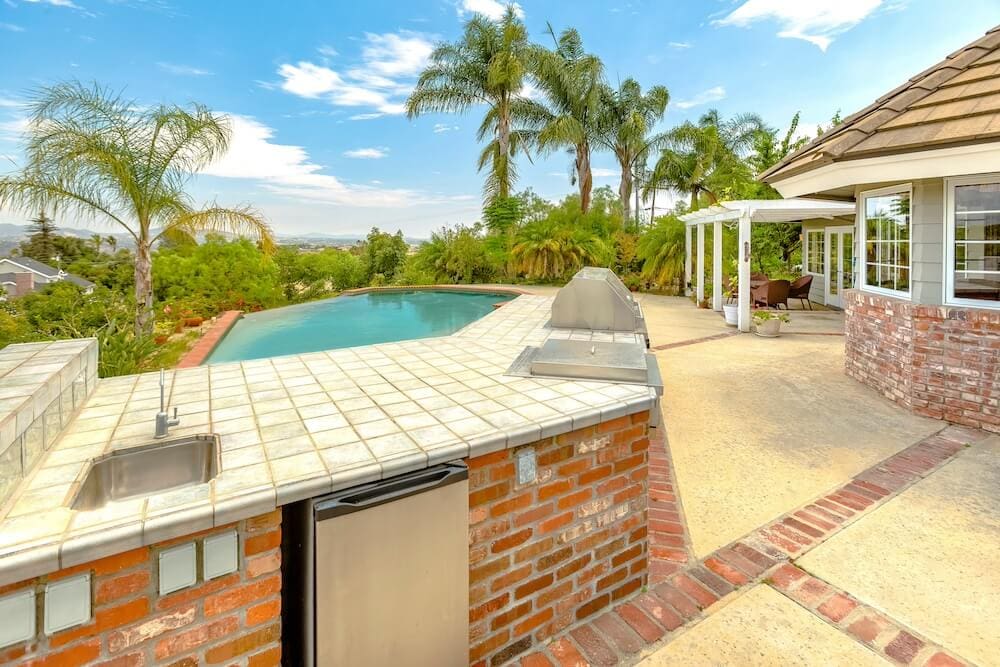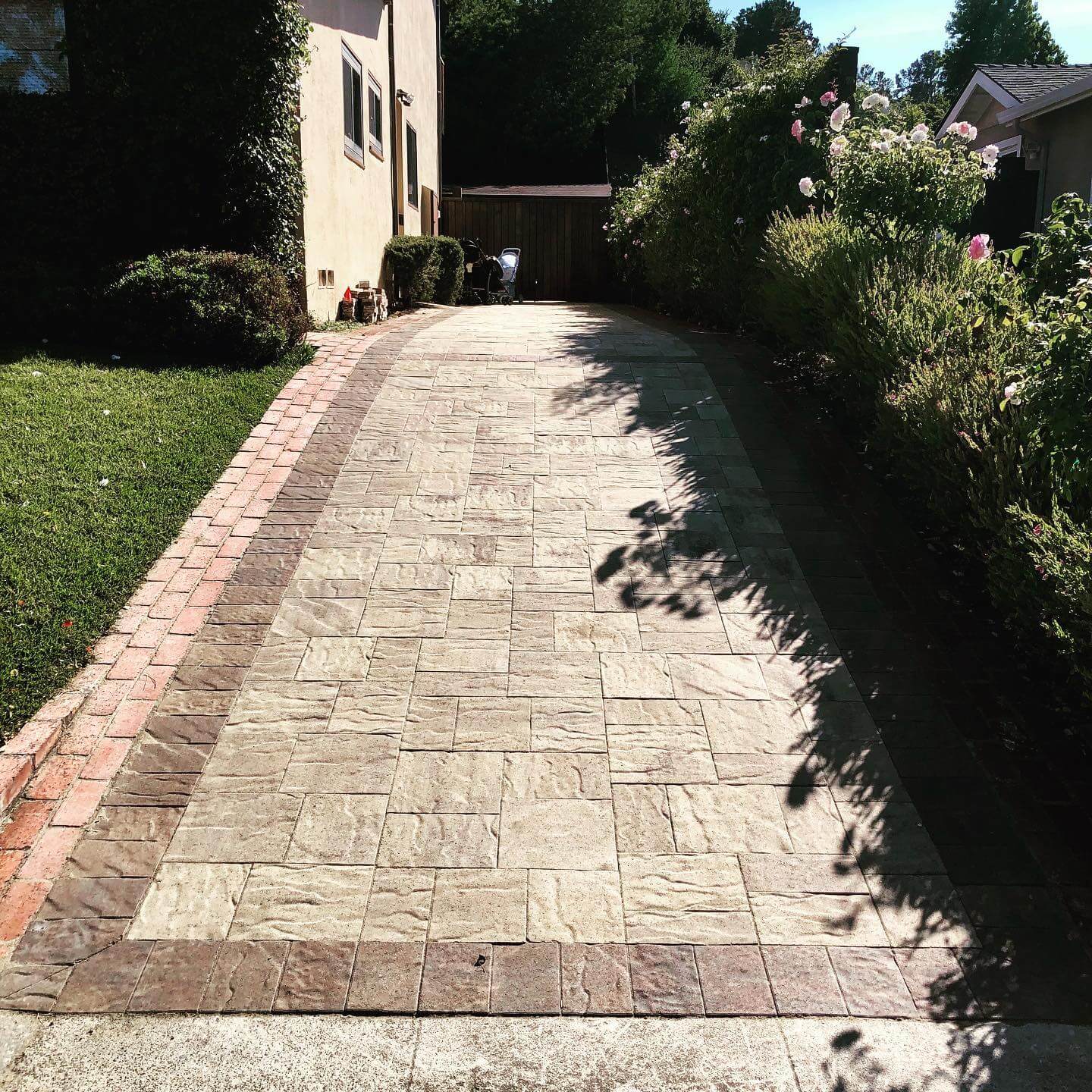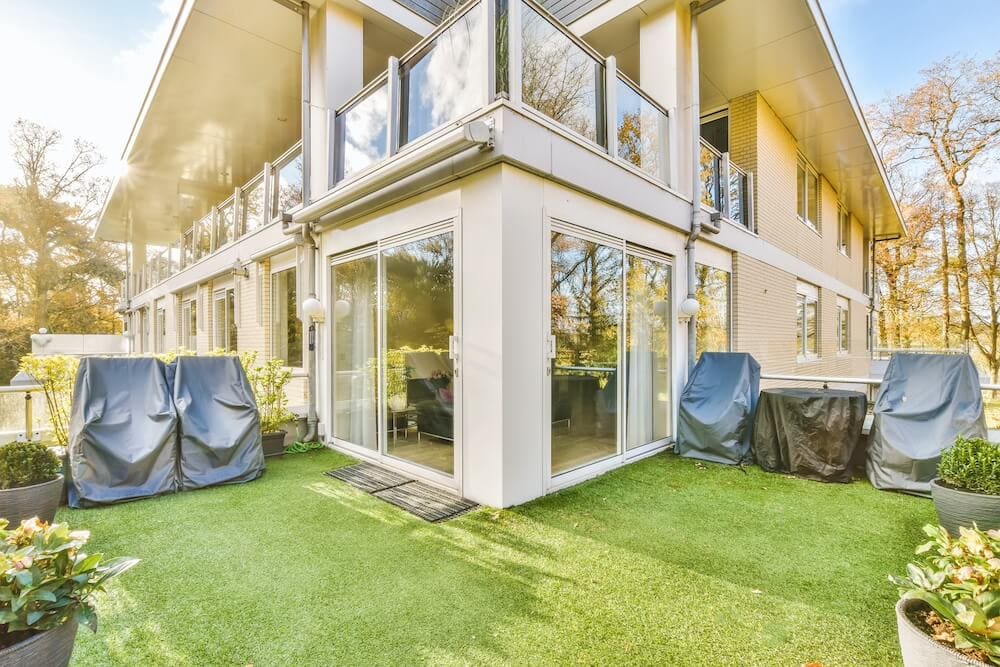
Masonry: Differences Between Repair & Restoration
What is Masonry?
The term “masonry” refers to construction with stone. Masonry work specifies any structure which is built by binding individual materials together with mortar, cement paste, water, and sand. The term may represent an entire building or a carved stone feature such as a headstone or bench. Various materials including brick, stone, and marble are applied in masonry work.
Anyone who practices the art of masonry is called a stonemason or mason. It consists of building structures by setting individual masonry units such as brick, concrete block, stone, etc. Commonly, these units are settled down with cement mortar, which acts as a binding material and binds them together to create an inviting structure.
Masonry construction provides beautiful walls and floors at reasonable prices. Due to the individual units, masonry construction requires great physical effort. Because of the cement, clay, or stone nature of the masonry materials, masonry construction tends to be durable and requires little fixing and maintenance.
Why is Masonry Important?
Masonry is a unique construction technique and process that makes building structures safe and durable. If you work in the construction industry, it may be significant for you to learn masonry to offer diverse and distinct materials for the building projects you supervise. You can also acknowledge the time and labor costs that this construction can bring, which helps you prepare to complete projects in a given timeline. It also gives clients an approximation of when they can expect the final product.
Differentiating Between Masonry Repair & Masonry Restoration Process
These two processes are often presumed to be identical; they are quite different.
Masonry Repair Process
As masonry is susceptible to cracking and chipping, masonry repair is the process of fixing and repairing cracks and chips within the existing structure. It is a common practice. Sometimes this is done by restoring sections of masonry. Caulking is another repair process. When brick, concrete, or stone blocks are vulnerable to cracking or chipping, it is more likely that the mortar needs to be replaced entirely, also called complete restoration, as it tends to disintegrate and wear out long before the brick gives way.
Masonry Restoration Process
Masonry restoration is a much more complex process than repairing. It is commonly done in older buildings whose brickwork needs to be replaced. Masonry restoration points to replacing the building’s masonry exterior with new and advanced materials that complement the original look of the building. Masonry repair is a cosmetic job usually suitable for amateurs to some degree while masonry restoration is an activity best left to competent professionals.
Types of Masonry Work
Three main types of masonry are applied for different applications depending on the structure that is to build.
Brick
Brick is a combination of clay and sand which has a rectangular shape, often red or brown. A construction company piles bricks above one another to construct the exterior of a building or the walls surrounding a fireplace. They may be the less expensive materials to purchase for brickwork construction, and their accessibility makes it easier to redeem and travel to and from construction sites. Brick masonry requires minimally skilled labor. Bricks are lightweight and hence easy to transport.
Stone
Stone is a type of rock that emerges in different shapes, such as rectangle, and square. It is the most durable, strong, and weather-resistant masonry. Stone is preferred where buildings have high foot traffic. Similar to bricks, stone units may usually have stacks of materials to increase the strength of a wall or walkway. Stone varies in color, size, shape, and structure. Stones having different surfaces help you select a texture that best fits the aesthetic appearance of your construction design.
Concrete
Concrete is a mixture of cement, sand, and gravel and is widely used in architectural structures. Once it’s applied to furnishings, water addition is required to allow the concrete to harden, which favors visitors to walk on top of it. Professionals may also aim to level to avoid cracks in the concrete and prolong a smooth finish on the surface. Transporting concrete material is a heavy task and quite expensive.
Learn About Keystone Yard’s Premier Masonry Services for Outdoor Living
Pros of Masonry Construction
Masonry construction can be helpful for the safety, long lifetime, and aesthetic appeal of personal belongings or business. The pros include:
I. Fire protection
Masonry materials are non-combustible, which means buildings with stone, concrete or brick may be less vulnerable to fire threats from outside. The constructor can make it safe and sound for residents or employees to work as it improves fire protection. For the same reasons, fireplaces are generally made of masonry. It can also amplify the thermal mass allowing occupants to feel warm, even when outdoor temperatures are low. For example, working in the northern part of the country during the winter, you may experience cold due to snow which can give the interior a chilling sensation. Brick, stone, or concrete materials can help you regulate the temperatures to make you feel more comfortable.
II. Diverse designs
Another benefit of masonry construction is its visual attraction. When you use stone for your home or business, you can choose from several colors and finishes that can enhance your property’s appearance. This distinct work can make the building appear more decent, elegant, and fascinating. It catches more attention than neighboring properties, which may be exclusive if you want to attract people outside your home or organization. Having a visually attractive estate can capture the attention of potential customers such as home buyers or property investors. Think about investing in this tempting construction and the aesthetic appeal of your belongings.
III. Longer lifespan
Properties with masonry materials have a longer lifetime, which can be beneficial if you are committed to your home or business location. Stone, brick, and concrete can resist changes as properties persist. The strength of the materials can also reduce the pressure from loud noises, allowing the interior to remain silent. For instance, if your office is near a railroad track, the soundproofing of the stonework in the building can permit you to concentrate on your work without being distracted by passing vehicles.
IV. Withstanding inclement weather
Besides fires, masonry construction can also resist potential damages from natural disasters, such as hurricanes, earthquakes, and tornadoes. The durability of its materials and the strength of its foundation can help protect the building’s structure during heavy rain and wind. If you live or work in an area where wintry weather is eminent, then this epic construction can protect the time and money you and your clients invested in the property.
V. High resistance against pests and disasters
Masonry offers high resistance against rot, pests, and natural disasters such as hurricanes and tornadoes.
VI. Increase in property value
The fire and weather resistance, longer lifespan, and aesthetic appeal may contribute to the overall value of a house or building. As a home or business owner, a higher property value can enable you to confer a higher selling price with expected buyers. If your objective is to place the property on the market after constructing it, then investing in stone, brick, or concrete for its exterior may be worth it. These structures provide an attractive pastoral or classic look for a home or building, depending on the used material and the workers’ skills.
Cons of Masonry Construction
There are also disadvantages to masonry construction. If you’re considering stone, brick, or concrete work for your next building, exploring the cons can help you prepare and overcome challenges during the construction process. Here’s a list of disadvantages:
I. Longer construction period
Constructing architecture with stone or concrete materials can take longer than building structures with other components. Due to the mortar, construction teams may not be able to work when it’s cold or raining outside. It prolongs the time it takes to complete the project. For example, rainstorms and low temperatures are common during winter. So the team may complete the project until the weather is warmer again with more sunshine. It can be helpful to launch a plan that checks the time length and creates processes for being productive on-site when the weather is suitable.
II. Difficulty in transportation
Masonry construction involves heavy materials such as bricks, stone, and concrete blocks. These cannot be transported in traditional vehicles. In some cases, they must be ordered from special catalogs, especially stones.
III. Limited space
While these materials are durable and can protect the structural solidarity of a property, their thickness and strength can limit the space inside a home or office. For example, the width of a stone wall or the expanse of a fireplace may consume some floors, leaving less room to add shelves or decor or reposition the furniture. To compensate for the lack of space, it may be helpful to limit the number of decors or furnishings in the room, allowing for a clear walkway. Stone rusty materials can make the place appear rougher.
IV. Susceptible to cracks
The strength and reliability of the structures depend completely on their base. If any fixing of the foundation occurs, cracks are probable and they must be repaired to avoid moisture infiltration and harm.
V. Specialized construction skills
Participating in masonry construction projects may require specialized construction skills because working with stones can be tricky. It can be challenging for professionals who have experience using brick, stones, or concrete and creating a base that induces longevity and weather resistance for the building. Enlisting and hiring professionals with diverse expertise in construction can help teams reach their goals when launching building projects. These projects are also convenient for less experienced employees to learn new skills, such as building a stone wall or handling mortar in unusual weather conditions.
Services we offer in Masonry
Keystone Yards is Napa, Sonoma, & Marin Counties’ leading outdoor landscape construction company that provides the best structural and decorative masonry services. As a full-service company, we cover all areas including concrete construction, repair, brick masonry, stone masonry, block masonry & maintenance. We work with all types of brick, stone, and block in all phases of construction. We are trusted by our thousands of clients. Keystone Yards masonry experienced and well versed team takes care of every aspect of your interest. We deliver quality at affordable prices.





